The Role of Antioxidants in Your Diet: Foods and Benefits for Long-Term Health
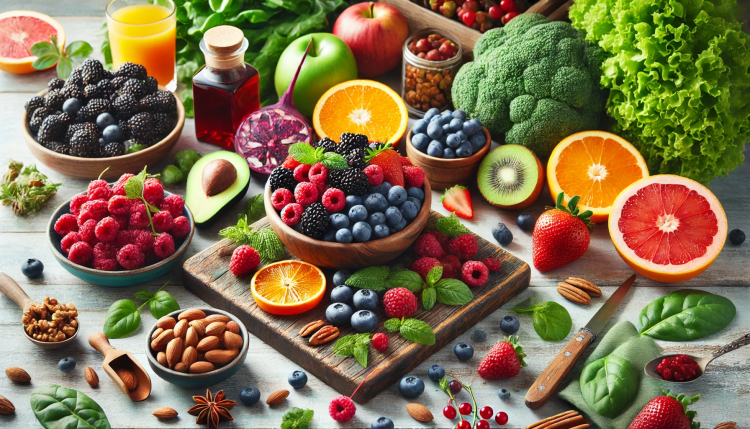
In the pursuit of a healthy lifestyle, it is essential to understand the importance of antioxidants in our diet. Antioxidants are compounds that protect the body from the damaging effects of free radicals—unstable molecules that can lead to cell damage and contribute to chronic diseases. By incorporating antioxidant-rich foods into your diet, you can promote long-term health, reduce the risk of illness, and maintain overall well-being. This comprehensive guide will explore the role of antioxidants, their benefits for health, and the best foods to include in your diet to harness their protective power.
What Are Antioxidants and How Do They Work?
Antioxidants are natural compounds found in various foods, primarily fruits, vegetables, nuts, and seeds. They play a crucial role in neutralizing free radicals, which are unstable molecules produced as byproducts of normal bodily functions, such as metabolism. Free radicals are also generated by external factors, such as pollution, cigarette smoke, UV radiation, and unhealthy dietary choices. If left unchecked, free radicals can cause oxidative stress, which leads to damage of cells, proteins, and DNA.
Oxidative stress has been linked to a variety of chronic diseases, including heart disease, cancer, diabetes, and neurodegenerative disorders like Alzheimer's disease. Antioxidants work by donating an electron to free radicals, stabilizing them, and preventing them from causing further damage. By maintaining a healthy balance between free radicals and antioxidants, you can protect your cells from damage and reduce the risk of developing chronic illnesses.
There are several types of antioxidants, each with its unique benefits. Some of the most well-known antioxidants include vitamins C and E, beta-carotene, selenium, and flavonoids. These antioxidants work together to protect different parts of the body and support overall health. By consuming a diet rich in a variety of antioxidant sources, you can ensure that your body receives comprehensive protection against oxidative stress and its harmful effects.
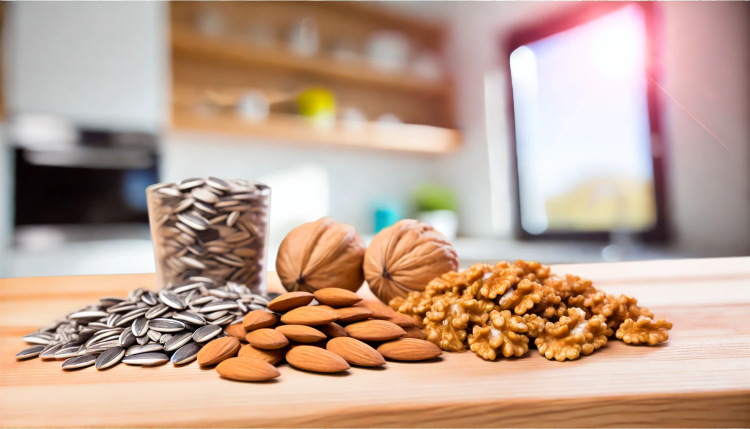
The Health Benefits of Antioxidants
The benefits of antioxidants extend beyond simply neutralizing free radicals. By incorporating antioxidant-rich foods into your diet, you can experience a wide range of health benefits that contribute to long-term well-being.
1. Boosting Immune Function
Antioxidants play a crucial role in supporting the immune system. Vitamin C, for example, is known for its immune-boosting properties. It helps stimulate the production of white blood cells, which are essential for fighting infections and keeping the body healthy. Vitamin E, another powerful antioxidant, also contributes to immune health by protecting immune cells from oxidative damage. By maintaining a diet rich in antioxidants, you can strengthen your immune defenses and reduce the risk of infections.
2. Reducing Inflammation
Chronic inflammation is a significant contributor to various health problems, including arthritis, cardiovascular disease, and metabolic disorders. Antioxidants have anti-inflammatory properties that help reduce inflammation and prevent its harmful effects on the body. Flavonoids, found in fruits, vegetables, and tea, are particularly effective in reducing inflammation by inhibiting the production of pro-inflammatory molecules. By reducing inflammation, antioxidants help protect the body from the damaging effects of chronic diseases and improve overall health.
3. Supporting Heart Health
Cardiovascular disease is one of the leading causes of death worldwide, and oxidative stress is a significant contributing factor. Antioxidants help protect the heart by preventing the oxidation of LDL cholesterol, which is a key step in the development of atherosclerosis—a condition characterized by the buildup of plaque in the arteries. By reducing oxidative stress and inflammation, antioxidants help maintain healthy blood vessels and reduce the risk of heart disease. Foods rich in antioxidants, such as berries, leafy greens, and nuts, have been shown to lower blood pressure, improve cholesterol levels, and promote overall heart health.
4. Promoting Healthy Aging
Aging is a natural process, but oxidative stress can accelerate the aging process and lead to the development of age-related diseases. Antioxidants help protect the skin and other tissues from damage caused by free radicals, promoting healthy aging and reducing the appearance of wrinkles and other signs of aging. Beta-carotene, found in orange and yellow fruits and vegetables, is particularly effective in protecting the skin from UV damage and maintaining a youthful appearance. By consuming antioxidant-rich foods, you can support healthy aging and maintain vitality as you grow older.
5. Protecting Brain Health
Neurodegenerative diseases, such as Alzheimer's and Parkinson's, have been linked to oxidative stress and inflammation in the brain. Antioxidants help protect brain cells from damage, reducing the risk of cognitive decline and supporting overall brain health. Flavonoids, found in berries, cocoa, and green tea, have been shown to improve memory and cognitive function by increasing blood flow to the brain and reducing inflammation. By incorporating antioxidant-rich foods into your diet, you can support brain health and reduce the risk of age-related cognitive decline.
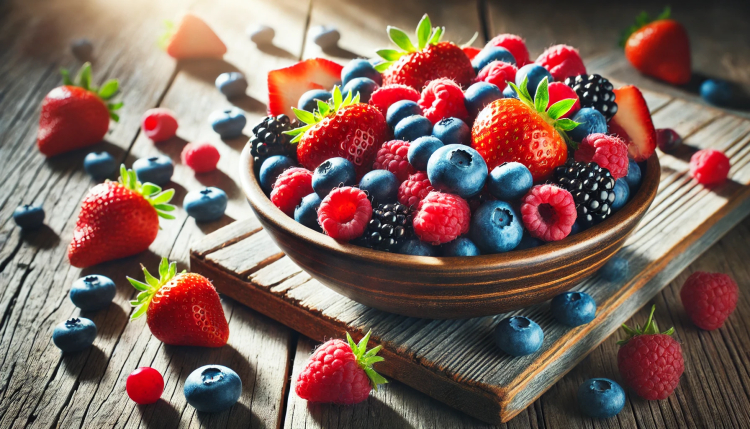
Top Antioxidant-Rich Foods to Include in Your Diet
To reap the benefits of antioxidants, it is essential to include a variety of antioxidant-rich foods in your diet. Here are some of the best sources of antioxidants and how they can contribute to your overall health.
1. Berries
Berries, such as blueberries, strawberries, raspberries, and blackberries, are some of the richest sources of antioxidants. They are particularly high in anthocyanins, a type of flavonoid that gives berries their vibrant colors and provides powerful antioxidant and anti-inflammatory properties. Berries are also rich in vitamin C, which helps support immune function and protect the skin from damage. Adding a handful of berries to your breakfast, smoothies, or salads is an easy way to boost your antioxidant intake.
2. Leafy Greens
Leafy greens, such as spinach, kale, and Swiss chard, are packed with antioxidants, including vitamins C and E, beta-carotene, and lutein. These antioxidants help protect the eyes, skin, and immune system from oxidative damage. Leafy greens are also rich in fiber, which supports digestive health and helps maintain healthy cholesterol levels. Including a variety of leafy greens in your diet can provide comprehensive antioxidant protection and support overall well-being.
3. Nuts and Seeds
Nuts and seeds are excellent sources of vitamin E, a fat-soluble antioxidant that helps protect cell membranes from damage. Almonds, sunflower seeds, and hazelnuts are particularly high in vitamin E and can be easily incorporated into your diet as a snack or added to salads, oatmeal, or yogurt. Nuts and seeds also contain healthy fats, which help the body absorb fat-soluble vitamins and support heart health. Including a small handful of nuts or seeds in your daily diet can provide a significant antioxidant boost.
4. Dark Chocolate
Dark chocolate is rich in flavonoids, which have been shown to improve heart health by reducing inflammation and improving blood flow. The antioxidants in dark chocolate can also help protect the skin from UV damage and support brain health. To reap the benefits, choose dark chocolate with a high cocoa content (at least 70%) and enjoy it in moderation. Dark chocolate is a delicious way to add antioxidants to your diet while satisfying your sweet tooth.
5. Green Tea
Green tea is a rich source of catechins, a type of antioxidant that has been shown to reduce inflammation, support heart health, and protect brain function. Drinking green tea regularly can help improve cholesterol levels, boost metabolism, and promote overall well-being. Green tea also contains L-theanine, an amino acid that promotes relaxation and reduces stress. Incorporating green tea into your daily routine is an easy way to increase your antioxidant intake and support long-term health.
6. Citrus Fruits
Citrus fruits, such as oranges, lemons, and grapefruits, are well-known for their high vitamin C content. Vitamin C is a powerful antioxidant that helps protect the immune system, promote collagen production, and support skin health. Citrus fruits also contain flavonoids that provide additional antioxidant and anti-inflammatory benefits. Adding citrus fruits to your diet can help protect your body from oxidative stress and support overall health.
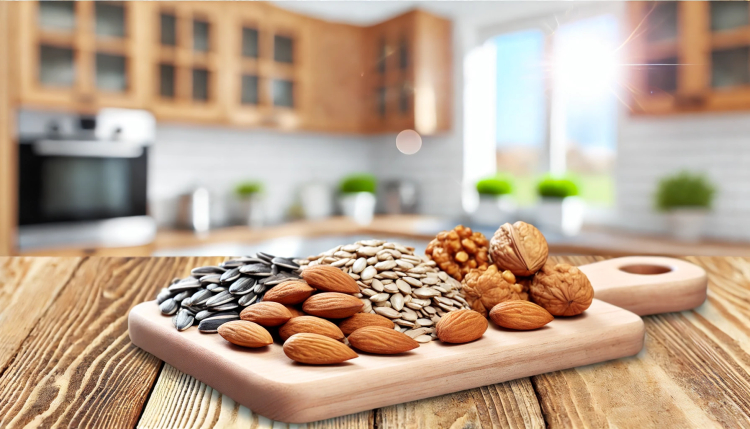
Tips for Maximizing Antioxidant Intake
To get the most out of the antioxidants in your diet, it’s important to consume a wide variety of antioxidant-rich foods. Different antioxidants work in different ways to protect the body, so eating a diverse range of foods ensures that you receive comprehensive protection. Aim to include a rainbow of colorful fruits and vegetables in your diet, as the pigments that give these foods their vibrant colors are often rich in antioxidants.
Fresh, whole foods are generally the best sources of antioxidants, as processing and cooking can reduce the antioxidant content of some foods. To preserve the antioxidants in your food, try to eat fruits and vegetables raw or lightly cooked whenever possible. Steaming, blanching, and sautéing are cooking methods that help retain the antioxidant content of foods, while boiling can cause some antioxidants to leach into the cooking water.
It’s also important to remember that balance is key when it comes to antioxidants. While they are beneficial in moderate amounts, excessive intake of antioxidant supplements can have negative effects and may interfere with the body’s natural defenses. It’s best to focus on getting antioxidants from whole foods rather than relying on supplements.
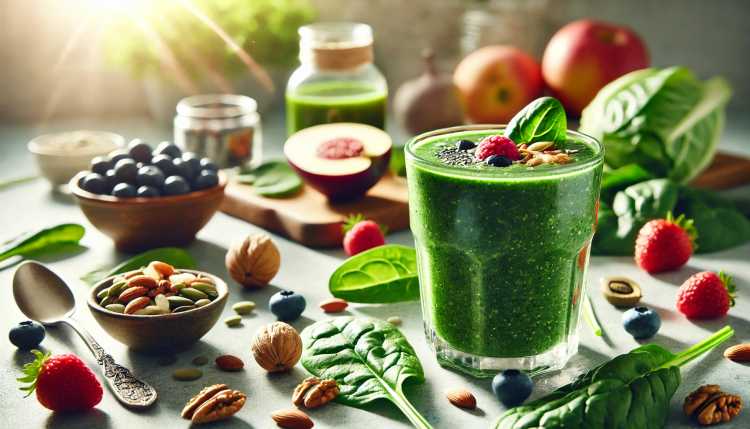
Conclusion
Antioxidants play a vital role in protecting the body from the damaging effects of free radicals, supporting immune function, reducing inflammation, and promoting overall health. By incorporating a variety of antioxidant-rich foods into your diet, such as berries, leafy greens, nuts, dark chocolate, green tea, and citrus fruits, you can support long-term health and reduce the risk of chronic diseases. The key to maximizing the benefits of antioxidants is to consume a diverse range of whole, fresh foods and to make these foods a regular part of your diet.
Whether you’re looking to boost your immune system, protect your heart, or promote healthy aging, antioxidants are an essential component of a balanced diet. By making informed choices and including antioxidant-rich foods in your daily meals, you can take proactive steps toward maintaining your health and well-being for years to come. So, head to your local market, stock up on colorful fruits and vegetables, and start enjoying the many benefits that antioxidants have to offer. Your body will thank you for it.
What's Your Reaction?





















